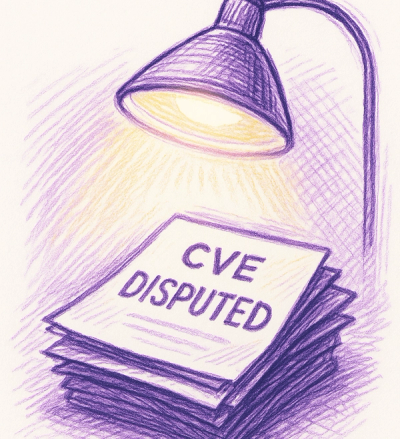
Security News
Google’s OSV Fix Just Added 500+ New Advisories — All Thanks to One Small Policy Change
A data handling bug in OSV.dev caused disputed CVEs to disappear from vulnerability feeds until a recent fix restored over 500 advisories.
@neutron-org/cosmopark
Advanced tools
This one is a tool to run your own Cosmos (Cosmos-SDK based blockchains). It supports standard cosmos-sdk chains and ICS (as for now tested with Neutron).
npx @neutron-org/cosmopark start your_config.tomlYou can use cosmopark as a library in your integration tests. It allows you to have several environments running in parallel.
const config: CosmoparkConfig = {
context,
networks: {
...networksConfigs,
},
relayers: {
...relayersConfigs,
},
master_mnemonic: wallets.master,
loglevel: 'info',
wallets: {
demo1: { mnemonic: `mnemonic1`, balance: '1000000000' },
demo2: { mnemonic: `mnemonic2`, balance: '1000000000' },
demo3: { mnemonic: `mnemonic3`, balance: '1000000000' },
},
};
const instance = await cosmopark.create(config);
and instance will have the following structure and methods:
class Cosmopark {
private context;
private filename;
logLevel: pino.Level;
ports: Record<string, CosmoparkNetworkPortOutput>;
config: CosmoparkConfig;
networks: Record<string, CosmoparkChain>;
relayers: CosmoparkHermesRelayer[];
custom_containers: CosmoparkCustomContainer[];
constructor(config: CosmoparkConfig);
static create(config: CosmoparkConfig): Promise<Cosmopark>;
awaitFirstBlock: () => Promise<void>;
pauseRelayer(type: 'hermes' | 'neutron', index: number): Promise<void>;
resumeRelayer(type: 'hermes' | 'neutron', index: number): Promise<void>;
restartRelayer(type: 'hermes' | 'neutron', index: number): Promise<void>;
pauseNetwork(network: string): Promise<void>;
executeInNetwork: (network: string, command: string) => Promise<IDockerComposeResult>;
stop: () => Promise<void>;
generateDockerCompose: () => void;
validateConfig: (config: CosmoparkConfig) => void;
}
Having this instance you can control your environment as well as get some info using ports populated after the start of the environment.
There are two types of networks supported: ics and standard. ICS network doesn't have validators and is run in standalone mode. Standard network has validators and you can configure validators count and stake per validator.
const icsChain = {
loglevel: 'debug',
trace: true,
public: true,
type: 'ics',
upload: [
'./artifacts/contracts',
'./artifacts/contracts_thirdparty',
'./artifacts/scripts/init-neutrond.sh',
],
post_init: ['CHAINID=ntrntest CHAIN_DIR=/opt /opt/init-neutrond.sh'],
genesis_opts: {
'app_state.crisis.constant_fee.denom': 'untrn',
},
config_opts: {
'consensus.timeout_commit': '500ms',
'consensus.timeout_propose': '500ms',
},
app_opts: {
'api.enable': 'true',
'api.address': 'tcp://0.0.0.0:1317',
'api.swagger': 'true',
'grpc.enable': 'true',
'grpc.address': '0.0.0.0:9090',
'minimum-gas-prices': '0.0025untrn',
'rosetta.enable': 'true',
'telemetry.prometheus-retention-time': 1000,
},
},
It is an example of the ICS network configuration. Here you can see the artifacts and init scripts that will be uploaded to the container, genesis options, and some additional options for the chain.
cosnt gaiaChain = {
binary: 'gaiad',
chain_id: 'testgaia',
denom: 'stake',
image: 'gaia-test',
prefix: 'cosmos',
trace: true,
validators: 2,
validators_balance: ['1900000000', '100000000'],
genesis_opts: {
'app_state.slashing.params.downtime_jail_duration': '10s',
'app_state.slashing.params.signed_blocks_window': '10',
'app_state.slashing.params.min_signed_per_window': '0.9',
'app_state.slashing.params.slash_fraction_downtime': '0.1',
'app_state.staking.params.validator_bond_factor': '10',
'app_state.staking.params.unbonding_time': '1814400s',
'app_state.mint.minter.inflation': '0.9',
'app_state.mint.params.inflation_max': '0.95',
'app_state.mint.params.inflation_min': '0.5',
'app_state.interchainaccounts.host_genesis_state.params.allow_messages': [
'*',
],
},
config_opts: {
'rpc.laddr': 'tcp://0.0.0.0:26657',
},
app_opts: {
'api.enable': true,
'api.address': 'tcp://0.0.0.0:1317',
'api.swagger': true,
'grpc.enable': true,
'grpc.address': '0.0.0.0:9090',
'minimum-gas-prices': '0stake',
'rosetta.enable': true,
},
commands: {
addGenesisAccount: 'genesis add-genesis-account',
gentx: 'genesis gentx',
collectGenTx: 'genesis collect-gentxs'
},
upload: redefinedParams.upload || ['./artifacts/scripts/init-gaia.sh'],
post_start: redefinedParams.postUpload || [
`/opt/init-gaia.sh > /opt/init-gaia.log 2>&1`,
],
}
This is an example of the standard network configuration. Here you can see the validators count, their balance, and genesis/app options. Also, you can see how to redefine commands to add genesis accounts and generate gentx files.
const networksConfigs = {
icsChain,
gaiaChain,
}
You can run custom containers in your environment. You can have an idea (it's pretty simmilar to docker-compose) of how to configure them from the following type:
export type CosmoparkCustomContainer = {
name: string;
image: string;
entrypoint: string;
ports: string[];
depends_on: string[];
volumes: string[];
};
Cosmopark can run hermes and neutron-query-relayer. You can configure them in the following way:
const relayersConfig = {
hermes: {
balance: '1000000000',
binary: 'hermes',
config: {
'chains.0.gas_multiplier': 1.2,
'chains.0.trusting_period': '112h0m0s',
'chains.0.unbonding_period': '336h0m0s',
'chains.1.gas_multiplier': 1.2,
'chains.1.trusting_period': '168h0m0s',
},
image: `hermes-test`,
log_level: 'trace',
type: 'hermes',
},
neutron: {
balance: '1000000000',
binary: 'neutron-query-relayer',
image: `neutron-query-relayer-test`,
log_level: 'debug',
type: 'neutron',
},
};
Please find TOML sample or JSON sample
FAQs
Start and interact with your cosmos park
The npm package @neutron-org/cosmopark receives a total of 67 weekly downloads. As such, @neutron-org/cosmopark popularity was classified as not popular.
We found that @neutron-org/cosmopark demonstrated a healthy version release cadence and project activity because the last version was released less than a year ago. It has 9 open source maintainers collaborating on the project.
Did you know?

Socket for GitHub automatically highlights issues in each pull request and monitors the health of all your open source dependencies. Discover the contents of your packages and block harmful activity before you install or update your dependencies.

Security News
A data handling bug in OSV.dev caused disputed CVEs to disappear from vulnerability feeds until a recent fix restored over 500 advisories.

Research
/Security News
175 malicious npm packages (26k+ downloads) used unpkg CDN to host redirect scripts for a credential-phishing campaign targeting 135+ organizations worldwide.

Security News
Python 3.14 adds template strings, deferred annotations, and subinterpreters, plus free-threaded mode, an experimental JIT, and Sigstore verification.